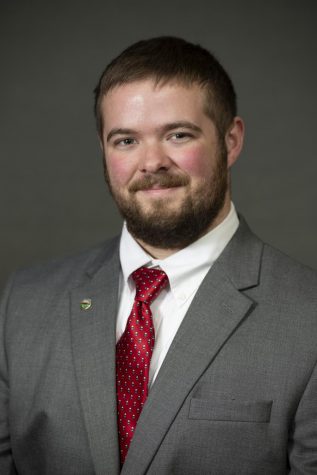Queer(ing) Kansas Lit: A Place Like Home
April 9, 2019
In Kansas literature, as with literature from other states, recognition for the LGBTQ community has been historically kept in the shadows. Writers who may not conform to the social norms of the day do not receive proper recognition as part of the LGBTQ community and were silenced. However, through the efforts of modern day poets and writers, these authors from the past and the present who have been silenced are being encouraged to share their experiences with the people of Washburn and, by extension, Kansas.
Recent efforts to shed light on the LGBTQ community and its relationship with the writing community has been made possible by the Center for Kansas Studies at Washburn and Humanities Kansas who have sponsored the recent event Queer(ing) Kansas Lit: A Place Like Home. This event is part of the larger Map of Kansas Literature project which focuses on a variety of events concerning writers in Kansas and how they impact the state. An open discussion/lecture took place last Wednesday on April 3.
More information regarding the Map of Kansas project can be found online at their website, https://mapofkansasliterature.averillkansascollection.com. The site has been updated and was first created by Washburn’s own Tom Averill, a veteran of the English Department. Other events within the Map of Kansas project include the themes of race in Kansas literature and radical Kansas literature.
C.J. Janovy, a writer and member of the LGBTQ community, spoke about how the event has helped bring attention to writers who may have had their sexual orientation ignored in the past. She said that being invited to speak at the event this past week was a great honor for her.
“I read from my book, which came out last year, No Place Like Home: Lessons in Activism from LGBT Kansas,” she said. “I’m a lesbian and a journalist, I spent several years researching and reporting in preparation for writing this book. I drove all around the state for several years, meeting with people in their communities, doing archival research and attending events.”
Izzy Wasserstein, a lecturer in the English Department and a queer trans woman, spoke about her own experience with the Map of Kansas project and what she spoke about at the Queer(ing) of Kansas lecture last Wednesday.
“We’re talking about Kansas literature that has been written by queer Kansans and what it means to queer literature. Often historically LGBTQ people have either been actively erased from history or had to conceal who they were in order to be safe,” Wasserstein said. “It is important to recognize LGBTQ people have always been part of Kansas history and we may never be able to know for sure who they were so what we have to do is look at the texts and the stories and make sense of what they mean to us and what they mean today.”
The Queer(ing) of Kansas Literature event draws a lot of support for those writers who fear that their differences will set them apart from the rest of the literary community in Kansas. Through events like this, LGBTQ writers in Kansas will be able to write their works and be understood by their peers.



